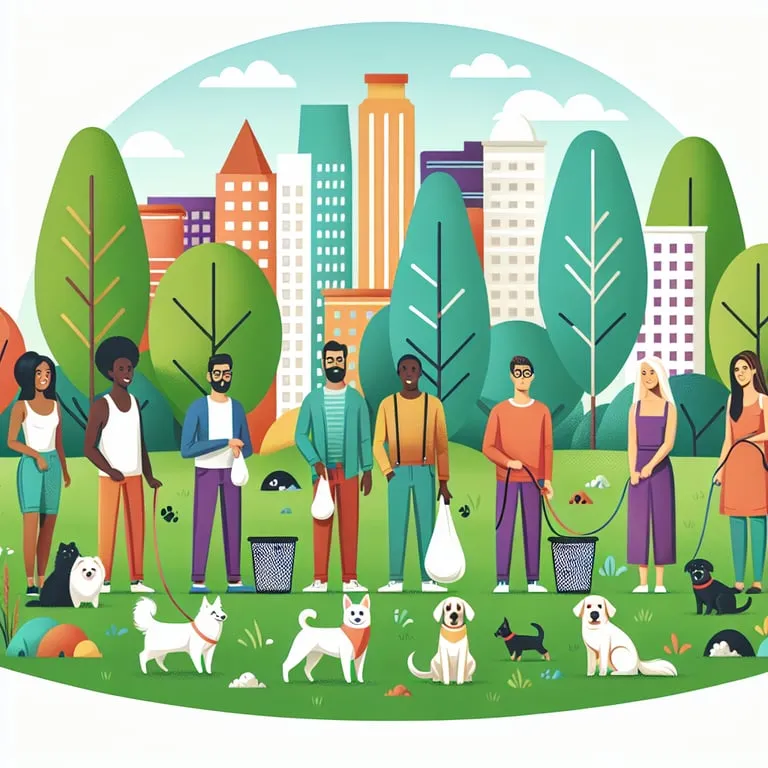In an era of increasing pet ownership, eco-friendly solutions for pet waste management in urban areas are essential. As over 5.52 million households in Korea own pets, it’s crucial to address pet waste concerns for harmonious urban coexistence.

The Growing Need for Sustainable Pet Waste Management
The burgeoning pet population in urban spaces presents unique challenges, particularly in managing pet waste. Pet waste is not only a cleanliness issue but also poses significant environmental risks. A medium-sized dog can produce approximately one ton of waste over its lifetime, which, if improperly managed, can lead to ~pollution~ affecting soil and water systems. This necessitates innovative and sustainable waste management practices.
Environmental Impact
The environmental ramifications of pet waste extend far beyond just littering public spaces. Improper disposal can result in harmful pathogens leaching into water supplies, endangering wildlife, and ecosystems. The potential contamination also underlines the urgency for municipalities to adopt eco-conscious practices.
Global Innovations in Pet Waste Solutions
Around the world, innovative strategies are being embraced to convert pet waste into valuable resources, exemplifying the potential for a circular economy. Several cities, such as those in the United Kingdom, have pioneered technology that converts dog waste into methane, which powers municipal street lamps. Similarly, New York has rolled out public pet waste collection initiatives that transform the refuse into usable energy. Toronto has shown leadership by converting park-collected waste into household electricity, proving that sustainable solutions are attainable.
South Korea’s Local Efforts and Initiatives
In response to global trends, South Korean cities like Seoul, Daejeon, and Goyang have proactively installed pet waste bins in public areas to ensure efficient waste collection. Incheon has debuted a smart pet waste management system across eleven parks, representing a significant stride in nurturing a pet-friendly urban environment.
Policy Advocacy and Legislative Initiatives
During the 97th session of the Sejong City Council, Assembly Member Hyun-ok Kim stressed the importance of developing pet-friendly urban spaces. The call was made for robust policies that address pet waste management, creating needed infrastructure, and offering dedicated spaces for pets. This legislative push recognizes the necessity of coexistence strategies between pet owners and non-pet owners, avoiding conflict, and enhancing communal living.
Proposed Solutions for Urban Environments
To address human-animal interactions in city spaces, proposed solutions such as installing waste bins throughout frequently utilized public areas can significantly reduce public tension. These measures not only alleviate friction but also beautify urban landscapes, thereby promoting harmony between pet and non-pet households.
Innovative Approaches to Pet Waste Processing
The future of sustainable pet waste management lies in recognizing pet waste as a renewable resource. Advanced technologies capable of transforming pet waste into gas for lighting or compost are emerging as promising innovations. These approaches not only solve disposal issues but also pave the way for environmental stewardship, offering a blueprint for energy-efficient urban settings.
In conclusion, achieving successful urban coexistence with pets necessitates forward-thinking and eco-friendly waste management solutions. As urban populations grow, collaboration between policymakers, urban planners, and community members is essential in sculpting a future that mutually benefits humans and their animal companions. Through integrating sustainable practices and technological advancements, societies can create more inclusive, cleaner, and environmentally harmonious metropolitan areas.
https://www.petmediapress.com/